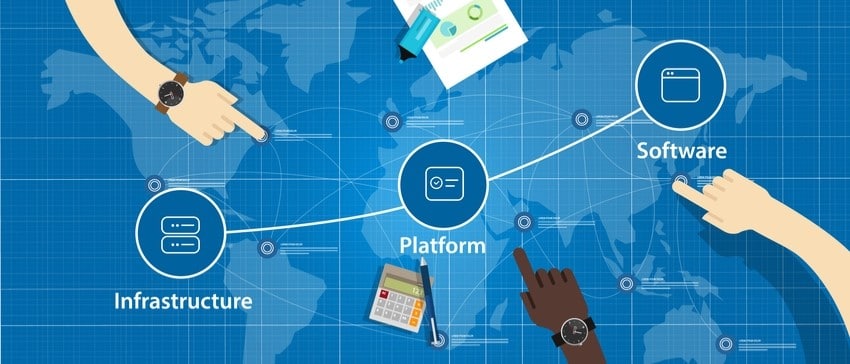Estimated reading time: 9 minutes
• Procurement is a central function in any organization, business, or institution. The procurement function underlines everything from sourcing, supplies, invoicing, billing, and more.
• Procurement covers the end-to-end process from where products or services are sourced to when they’re delivered to the recipient organization or enterprise.
• A robust, streamlined, and well-defined procurement function can deliver lasting value. A solid procurement process cuts costs provide greater efficiency, helps with product innovation, and competitive positioning. Among other advantages of procurement include supply chain resiliency and supplier risk mitigation.
There’s no doubt that behind any successful procurement function are procurement professionals with relevant skills and competencies. Procurement planning and management, as with everything else, demands particular skills and competencies. This article explores the top five winning procurement specialist skills to create a better understanding of what’s needed to excel in procurement management.
Communication Skills
Procurement processes demand strong communication skills because procurement professionals have to communicate and negotiate with suppliers. A significant part of procurement planning and project management is creating a streamlined communication channel and feedback mechanism. Procurement professionals with solid communication and negotiation skills can close sales, drive leads, and forge lasting supplier relationships.
Strategic Management
The procurement function is changing, meaning that professionals in this sector have to adapt and hone their skills. Developments in mobile commerce, IoT, virtual reality, and augmented reality are forcing stores and enterprises to be more agile in streamlining online purchase and ordering processes.
Strategic management allows procurement professionals to apply market-based principles to evaluate markets, prioritize needs, and make evidence-based decisions to drive value. Procurement professionals will be required to encompass a rich knowledge of strategic management to enable organizations and enterprises to adapt to changing needs.
Category Management
Category management is an award-winning procurement skill and competency. Category management enables supply chain and procurement professionals to do market research, conduct consumer segmentation, and identify and prioritize product categories according to corporate goals and business objectives. Professionals with superior category management skills will help your business achieve improved quality, better outcomes, and increased focus on collaboration and innovation.
Flexibility
The Covid–19 pandemic has disrupted supply chains, caused unprecedented market shocks, and hampered business continuity in multiple sectors – manufacturing, retail, healthcare, processing, food, and beverage. For instance, a global shortage of semiconductors and processors has already been reported. This situation has forced manufacturers to consider alternative sourcing options. Procurement professionals need to be flexible to adapt to changing situations. The ability to be flexible can be indispensable in procurement management, especially during incidences of unpredictability.
Strategic Thinking
Procurement is a strategic process that involves identifying suitable suppliers, conducting background assessments, obtaining quotes, reviewing quotations, and awarding a supply contract. The end-to-end procurement process demands strategic thinking. Procurement professionals must apply a strategic mindset to support a sustainable sourcing process. Procurement professionals with strategic thinking can handle regular business demands like strategizing on budgets, suppliers, and new resources.
Required Procurement Specialist Skills
Other skills are required to excel in procurement planning and management. While these skills are not common, they play an instrumental role in the success of any procurement professional. Below are additional procurement specialist skills may consider in excelling in their respective fields:
- Soft skills. Procurement professionals must nurture soft skills beyond technical and industrial certification. While technical skills are still valued, soft skills like influence skills, leadership, and behavioral management must be backed by credible technical skills.
- Digital skills. Automation is gradually taking over most sectors and procurement is not an exception. Procurement software is experiencing innovation around automation. This trend will continue to grow as more professionals and business leaders consider automation as a central part of their operations. Automation is reducing and eliminating human error which means that soft skills will be more critical as procurement professionals are freed from time-intensive, repetitive duties.
- Management skills. Procurement is primarily a management function and thus the need for procurement professionals to have strong management skills. Procurement professionals with sound management skills can oversee supply chain responsibilities. Management skills also mean being able to meet the procurement requirements at hand.
- Analytical skills. Analytical skills are critical for any purchasing or procurement position. This is because there is a huge amount of information and data that procurement professionals encounter regularly. Strong analytical skills enable procurement professionals to conduct financing and budgeting, maintain standard supplier relationships, and interpret statistical documents like spreadsheets and excel. For automated procurement tasks, analytical skills enable procurement professionals to accurately interpret statistical dashboard representations.
- Stakeholder management. This is the practice of identifying external and internal stakeholders, prioritizing their needs, determining business objectives, and positively engaging stakeholders to meet business goals. Procurement management requires strong stakeholder management skills to ensure that internal and external stakeholders are actively engaged to achieve the desired business outcome.
- Relationship building. This involves creating relationships to manage business processes through meaningful insight and metrics. Procurement professionals need to have strong interpersonal capabilities to manage and influence business relationships. Relationship-building provides procurement professionals with the opportunities to optimize client relationships to drive business value.
ProcurePort – Redefining Your Procurement Function
ProcurePort is a leading provider of automated procurement solutions. ProcurePort simplifies complex, sophisticated procurement processes into simple, digestible practices. Enterprises that leverage automated procurement achieve operational efficiency, cut costs, improve performance, scale business processes, and impact the bottom line. ProcurePort achieves competitive positioning with diverse services – purchase requisition, reverse auctions, contract management, and spend analysis.
Contact ProcurePort to turn your procurement function into a winning process.










